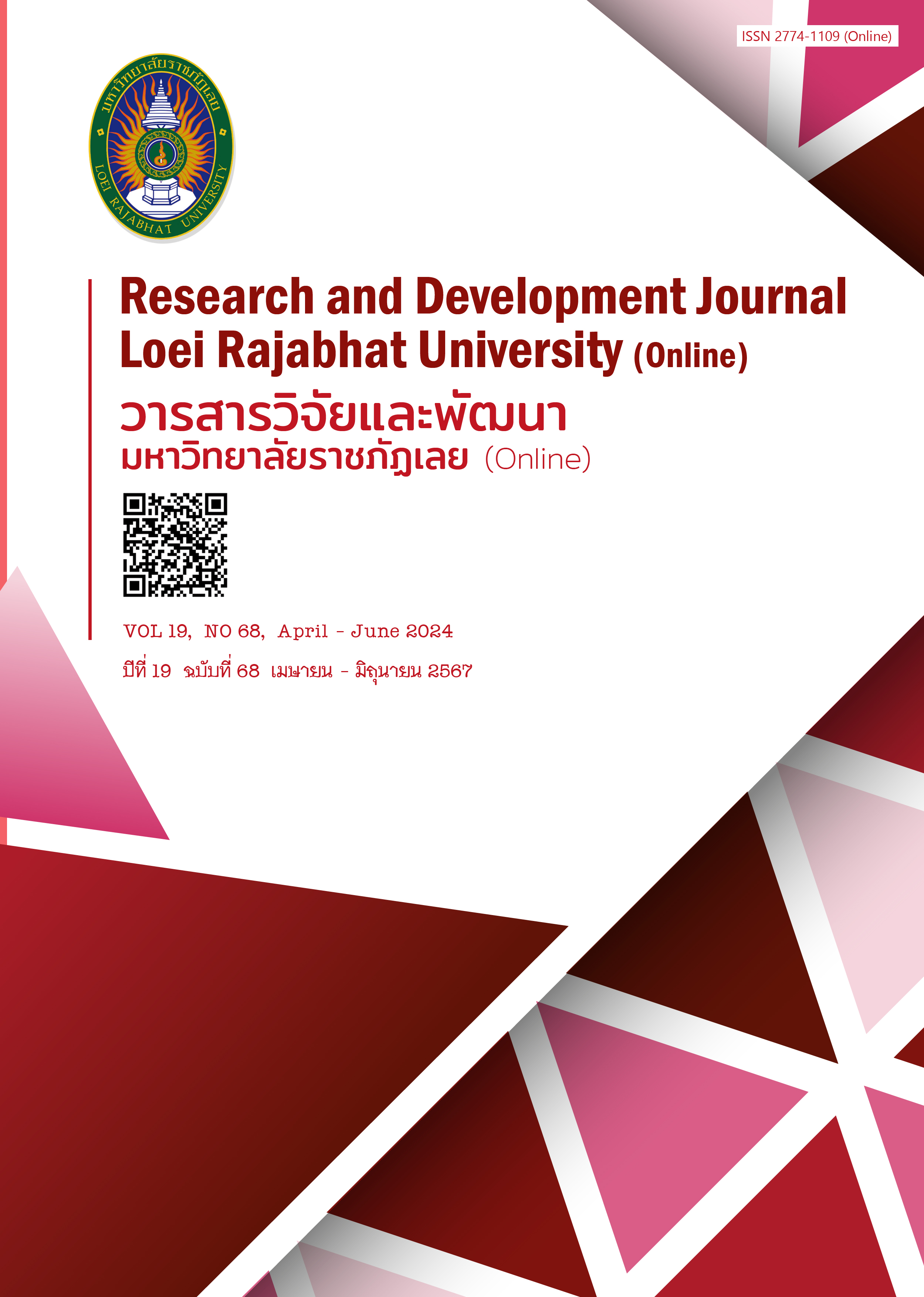Guidelines for the Development of Quality Standard Factors of Cultural Tourism Attractions in Phuket Province
Keywords:
cultural attractions, quality standards, intention to travelAbstract
The objectives of this research were 1) to explore cultural sites that have the potential to be upgraded to tourist attractions in Phuket. 2) to assess the quality standard of cultural attractions in Phuket 3) to study the factors of the quality standard of cultural attractions that influences the intentions of tourists and 4) to propose a guideline for the development of quality standard factors for cultural tourist attractions in Phuket. Objectives 1 and 2 are qualitative research by focus group activities. The sample groups are 1) a group of people involved in organizing cultural tourism in Phuket province and 2) a group of Generation Y tourists. For the objective 3, it is a quantitative research by using a questionnaire. There were 400 Thai tourists in the Generation Y group. For the objective 4 is the results of the study according to objectives 1-3 were analyzed and discussed. The data analyzed using descriptive statistics, including frequency, percentage, mean, and standard deviation, as well as inferential statistics, including Multiple Regression Analysis.
Qualitative research results found that the top 3 cultural resources that have the potential to be elevated to tourist destinations are all ancient cultural sites. When considering quality standards It was found that the overall tourist attractions have high quality standards. In addition, the quantitative research results of the analysis of the relationship of the quality standard factors of cultural tourist attractions that influence the overall intention of tourists to visit cultural tourist attractions in Phuket Province, It was found that the influential factor variables with statistical significance at the .05 level were 2 factors out of 7 factors. These include 1) factors of artistic and cultural value and 2) factors of potential and organization of activities. In this regard, guidelines for developing seven factors were proposed, consisting of 1) artistic and cultural value factors, 2) potential and activity factors, 3) management factors, 4) development factors from external factors, 5) conservation management factors, 6) factors. development of facilities and 7) communication factors.
References
การท่องเที่ยวแห่งประเทศไทย. (2561). โครงการศึกษาพฤติกรรมนักท่องเที่ยวชาวไทยที่มีศักยภาพในการใช้จ่าย. กรุงเทพฯ: บริษัท แบรนด์ เมทริกซ์ รีเสิร์ช จำกัด.
เกตุวดี สมบูรณ์ทวี, คมกริช ศรีไพรงาม, และ ลลิตภัทร สร้างถิ่น. (2561). ปัจจัยด้านคุณภาพ ที่ส่งผลต่อการตัดสินใจซื้อรถยนต์สัญชาติญี่ปุ่น. วารสารการจัดการ มหาวิทยาลัยวลัยลักษณ์, 7(1), 1-8.
เฉลิมพล จตุพร. (2564). ความสัมพันธ์ระหว่างการท่องเที่ยวและการเติบโตทางเศรษฐกิจของประเทศไทย (วิทยานิพนธ์ปริญญามหาบัณฑิต). มหาวิทยาลัยแม่โจ้, เชียงใหม่.
เทิดชาย ช่วยบำรุง. (2552). บทบาทขององค์กรปกครองส่วนท้องถิ่นกับการพัฒนาการท่องเที่ยวอย่างยั่งยืนบนฐานแนวคิดเศรษฐกิจพอเพียง. กรุงเทพฯ: สถาบันพระปกเกล้า สำนักพิมพ์คณะรัฐมนตรีและราชกิจจานุเบกษา.
นิรชา เอี่ยมชะโอด. (2563). การศึกษาทัศนคติของผู้บริโภค Generation Y ในการซื้อผลิตภัณฑ์ที่เป็นมิตรต่อสิ่งแวดล้อม (วิทยานิพนธ์ปริญญามหาบัณฑิต). มหาวิทยาลัยมหิดล, กรุงเทพฯ.
บริษัท เอฟฟินิตี้ จำกัด. (2559). รายงานฉบับสมบูรณ์ (Final report) โครงการทิศทางการพัฒนาท่องเที่ยวของประเทศไทยในระยะ 10 ปี. กรุงเทพฯ: กระทรวงการท่องเที่ยวและกีฬา.
บุญเลิศ จิตตั้งวัฒนา. (2548). อุตสาหกรรมการท่องเที่ยว (Tourism Industry). กรุงเทพฯ: บริษัท เพรส แอนด์ ดีไซน์ จำกัด.
ประไพพิมพ์ สุธีวสินนนท์ และ ประสพชัย พสุนนท์. (2559). กลยุทธ์การเลือกตัวอย่างสำหรับการวิจัยเชิงคุณภาพ. วารสารปาริชาต มหาวิทยาลัยทักษิณ, 29(2), 31-48.
พัทธมน ภมรานนท์. (2562). ปัจจัยที่มีอิทธิพลต่อการตัดสินใจท่องเที่ยวเชิงประวัติศาสตร์และวัฒนธรรมของนักท่องเที่ยวชาวไทย ในจังหวัดพระนครศรีอยุธยา (การค้นคว้าอิสระปริญญามหาบัณฑิต). มหาวิทยาลัยกรุงเทพ, กรุงเทพฯ.
วนิดา เลิศพิพัฒนานนท์. (2561). รูปแบบพฤติกรรมและแรงจูงใจในการท่องเที่ยวของคนไทย Gen Y Thai Gen Y People’ Travelling Behavior and Motivation Patterns. วารสารวิทยาลัยดุสิตธานี, 12, 134-149.
สุธาสินี วิยาภรณ์, ตุลา ไชยาศิรินทร์โรจน์, และ รุจิภา สินสมบูรณ์ทอง. (2564). แนวทางพัฒนาศักยภาพการท่องเที่ยวเชิงประวัติศาสตร์ ย่านเมืองเก่า อำเภอเมือง จังหวัดภูเก็ต. วารสารวิชาการ สถาบันวิทยาการจัดการแห่งแปซิฟิค, 7(1), 180-188.
อนุชิต ไกรวิจิตร. (2562). ภาพรวมรายได้การท่องเที่ยวรายจังหวัด ครึ่งปี 2562. สืบค้นจาก https://thestandard.co/tourism-revenue-2019/
อัจจิมา หนูคง, ไพบูลย์ ดวงจันทร์, ฉันทัส ทองช่วย, และ มัณฑนา นวลเจริญ. (2559). การจัดการพิพิธภัณฑ์อย่างสร้างสรรค์เพื่อการท่องเที่ยวทางวัฒนธรรมในจังหวัดภูเก็ต. วารสารมนุษยศาสตร์สังคมศาสตร์ มหาวิทยาลัยทักษิณ, 10(2), 179-197.
ไอลดา โฉมอินทร์. (2559). ปัจจัยที่ส่งผลต่อความตั้งใจด้านพฤติกรรมของนักท่องเที่ยวจีนในรูปแบบการท่องเที่ยวเชิงวัฒนธรรม (วิทยานิพนธ์ปริญญามหาบัณฑิต). มหาวิทยาลัยบูรพา, ชลบุรี.
Cochran, W. G. (1963). Sampling Technique. New York: John Wiley and Sons.
Pakpum Kowisuth. (2015). Factors influence hotel selection of tourist travelling with children in Phuket (Master’s Thesis). Prince of Songkhla University, Phuket.
THE MODERNIST. (2566). ท่องเที่ยวยั่งยืน เทรนด์ใหม่ของคนเจน Y - Z. สืบค้นจาก https://themodernist.in.th/sustainable-tourism-a-new-trend-for-gen-y-z-people/
Downloads
Published
How to Cite
Issue
Section
License
Copyright (c) 2024 Research and Development Journal, Loei Rajabhat University

This work is licensed under a Creative Commons Attribution-NonCommercial-NoDerivatives 4.0 International License.
ข้อความที่ปรากฎในวารสารฉบับนี้เป็นความคิดเห็นของผู้เขียนแต่ละท่าน สถาบันวิจัยและพัฒนา มหาวิทยาลัยราชภัฏเลย และกองบรรณาธิการ ไม่จำเป็นต้องเห็นด้วยและไม่มีส่วนรับผิดชอบใดๆ
สถาบันวิจัยและพัฒนา มหาวิทยาลัยราชภัฏเลย ขอให้ผู้อ่านอ้างอิงในกรณีที่ท่านคัดลอกเนื้อหาบทความในวารสารฉบับนี้



